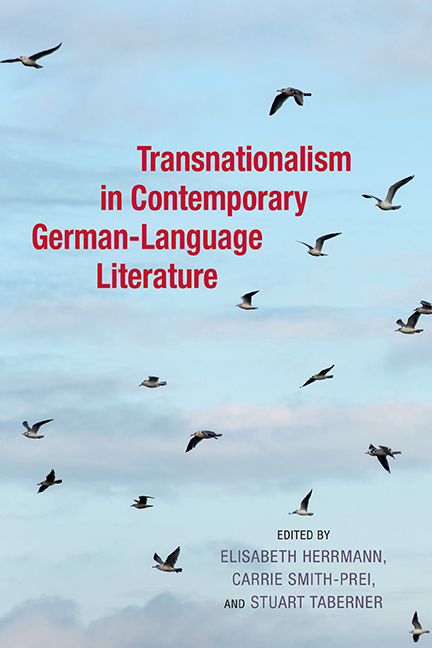10 - Cultural Dichotomies and Lived Transnationalism in Recent Russian-German Narratives
Published online by Cambridge University Press: 10 June 2021
Summary
TRANSNATIONALISM IS A SLIPPERY CONSTRUCT that means different things in different contexts and academic disciplines. The expansion of the semantic field of the concept, both geographically and theoretically, has also led to a loss of specificity. Originally, the term was used as a by-product of economic globalization and referred almost exclusively to multinational corporations whose commercial and financial activities transcended national boundaries and the controls exerted by the nation-state. Over the last twenty-five years or so, the concept of transnationalism has gained traction especially in the social sciences and in interdisciplinary fields, such as international relations, gender studies, and cultural studies.
As a manifestation of the processes of globalization, which mobilizes capital, people, goods, and energies across national boundaries, transnationalism identifies the tensions that globalizing processes mean for the nation-state and its inhabitants. This is especially true in the German context, where inclusion into and exclusion from the nation have been historically volatile and continue to be fraught, despite new legislation, such as the Nationality Act (2000) and the Immigration Act (2005). Transnationalism, then, opens up issues of territoriality and nationality for renewed questioning.
Transnational literature—for a start understood as texts dealing with characters, movements, and forces that cross national boundaries, translate identities and cultures, and complicate the political, social, and cultural fabric of nations and people—has experienced a growing popular and critical attention in Germany, Austria, and Switzerland. In terms of the literary market place, we might suggest that the literature of the “transnational turn” was for the first millennial decade what Fräuleinwunder (Miss Miracle), new realism, and New German Pop Literature were for the late 1990s. This positioning has not only altered the societal discourse about literature, but also the internal, linguistic, and thematic topography of the literatures of the German-speaking countries since the 1990s.
This is especially due to the many authors who write in languages different from their mother tongues and have brought about structural changes of the literary scenes by breaking open incrusted categories. Hyphenated authors, that is, migrant, minority, and nonethnic Germanlanguage writers, were the primary focus of literary criticism in analyzing issues of transnationalism.
- Type
- Chapter
- Information
- Transnationalism in Contemporary German-Language Literature , pp. 209 - 227Publisher: Boydell & BrewerPrint publication year: 2015
- 1
- Cited by

